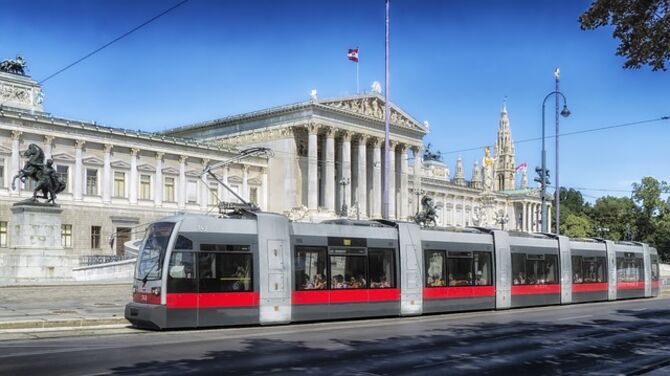Europe retains attraction for expat quality of life: Mercer
Mercer’s latest ‘Quality of Living’ survey sees key European expat destinations like Switzerland and Germany performing strongly on the global index, primarily due to infrastructure and connectivity.

Extra focus on city infrastructure as Brexit considerations come to fore
Reflecting city infrastructure’s important role as a decision factor in corporate relocations and new operations – more so now with some companies considering their future in London and the UK after Brexit – Mercer ranked this separately this year.The measure includes ease of access to transportation, reliable electricity and drinkable water, telephone and mail services, public transportation as well as traffic congestion and the range of international flights available from local airports. Here, Frankfurt and Munich both take second place, with Singapore placed first. European centres dominate the rest of the infrastructure top ten: Copenhagen (4), Dusseldorf (5), London (6), Hamburg and Zurich (=9).Explaining the importance of this measure to relocating companies, globally mobile workers and their families, Slagin Parakatil, principal at Mercer responsible for its quality of living research, said: “The success of foreign assignments is influenced by issues such as ease of travel and communication, sanitation standards, personal safety, and access to public service. Multinational companies need accurate and timely information to help calculate fair and consistent expatriate compensation – a real challenge in locations with a compromised quality of living.”Mr Parakatil added: “A city’s infrastructure, or rather the lack thereof, can considerably affect the quality of living that expatriates and their families experience on a daily basis. Access to a variety of transport options, being connected locally and internationally, and access to electricity and drinkable water are among the essential needs of expatriates arriving in a new location on assignment.“A well-developed infrastructure can also be a key competitive advantage for cities and municipalities trying to attract multinational companies, talent and foreign investments.”Related reading:
Think tank predicts 30,000 London jobs will relocate
Third of manufacturers eyeing post-Brexit relocation
Cardiff beats London in Global Cities’ Talent Competitiveness Index
Looking beyond Mercer's Quality of Living index top ten, Prague (69) is the highest ranking city in Central and Eastern Europe, followed by Ljubljana (76) and Budapest (78). Most European cities' rankings were stable, except Brussels (27), which dropped six places because of terrorism-related security issues, and Rome (57), down four places due to its waste-removal issues.Istanbul fell from 122nd to 133rd place as a result of the severe political turmoil in Turkey during the past year. The lowest ranking cities in Europe are St. Petersburg and Tirana (both ranked 176), along with Minsk (189).
The UK's attractiveness
In the UK, London (40) is the highest-ranking city for quality of living, followed by Edinburgh (45), Birmingham (53), Glasgow (53), Aberdeen (58), and Belfast (66). For city infrastructure, London (6) is the highest-ranking UK city followed by Birmingham, Edinburgh and Glasgow all tied in 44th place. Aberdeen and Belfast are tied in 70th place worldwide for city infrastructure.“All UK cities remain attractive locations for multinational companies and their employees as they continue to rank highly for quality of living,” said Kate Fitzpatrick, Mercer’s global mobility practice leader for the UK & Ireland. “London leads the pack in both the overall quality of living and this year’s supplementary city infrastructure ranking, with its multiple international airports and a large and comprehensive public transport network. The capital’s only downfall in regard to infrastructure is heavy traffic congestion, which also contributes to the city’s low score for air quality and pollution.
“Mercer will continue to closely monitor any impact of the upcoming Brexit negotiations on the quality of living in UK and European cities overall, in order to support multinational companies as they assess the best locations to attract the skilled workforce they require.”
Importance in relocation of acting on sound information
Concluding, Ilya Bonic, senior partner and president of Mercer’s Career business, said: “Economic instability, social unrest, and growing political upheaval all add to the complex challenge multinational companies face when analysing quality of living for their expatriate workforce.“For multinationals and governments it is vital to have quality of living information that is accurate, detailed, and reliable. It not only enables these employers to compensate employees appropriately, but it also provides a planning benchmark and insights into the often-sensitive operational environment that surrounds their workforce.“In uncertain times, organisations that plan to establish themselves and send staff to a new location should ensure they get a complete picture of the city, including its viability as a business location and its attractiveness to key talent,” said Mr Bonic.Look out for the upcoming spring issue of Relocate magazine, which features more insight and analysis from the Mercer Quality of Living index. Reserve your copy here.
Access hundreds of global services and suppliers in our Online Directory
Get access to our free Global Mobility Toolkit

©2025 Re:locate magazine, published by Profile Locations, Spray Hill, Hastings Road, Lamberhurst, Kent TN3 8JB. All rights reserved. This publication (or any part thereof) may not be reproduced in any form without the prior written permission of Profile Locations. Profile Locations accepts no liability for the accuracy of the contents or any opinions expressed herein.




































